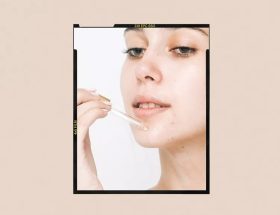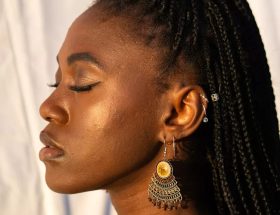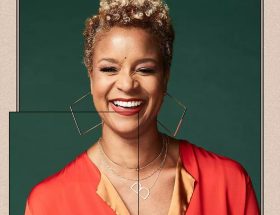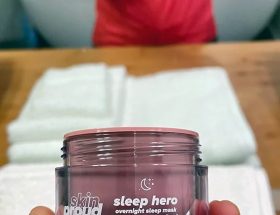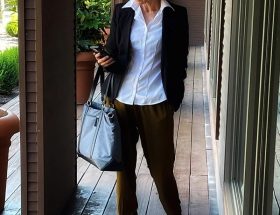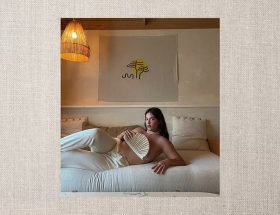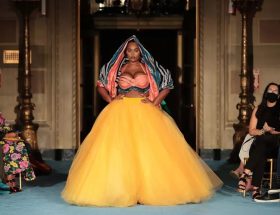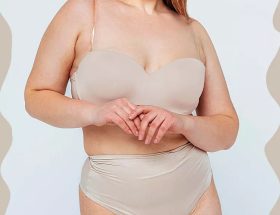After Years of Breakouts,I’m Embracing Acne Neutrality
Acne has been historically treated as a flaw in the beauty and fashion industry. People with chronic skin conditions like acne were not widely represented in campaign imagery or on runways in decades past. In recent years, these industries have gone through a reckoning of sorts, resulting in more inclusivity of individuals with textured skin. As these spaces have evolved, movements like “acne positivity” have also taken center stage.
The goal of these movements is not only to bring awareness to the lack of diversity in these industries but to also change the landscape in terms of representation. Celebrating different skin types in fashion and beauty has also allowed even more nuanced perspectives to develop. Attitudes towards skin now exist on a wider spectrum, with “neutrality” becoming a more common stance amongst individuals and brands.
FEATURED VIDEO
The Beautiful, Black History Of Cornrows
What Is “Acne Neutrality?”
Many people in the health and wellness space have adopted neutral perspectives on body image. Regarding “body neutrality,” certified personal trainer and inclusive fitness expert Lauren Leavell told Byrdie: “Going from ‘I do not like my body’ to ‘I love my body’ can be a stretch for a lot of people. ‘Body neutrality’ offers a space to observe without judgment and forced positivity.”
The same thinking applies to “acne neutrality.” As someone who has been on Accutane twice, approaching my ever-evolving relationship with my skin from a neutral angle is more realistic and helpful. There are days I wake up with active breakouts, and I feel hopeless. Being bombarded with the beauty standard of crystal-clear, glass-like skin impacts the mental health of those who deal with skin conditions in multiple ways. Describing human skin in ways that reflect non-human objects is ultimately harmful in the long run.
Being bombarded with the beauty standard of crystal-clear, glass-like skin impacts the mental health of those who deal with skin conditions.
While the intention behind “acne positivity” is well-meaning, it fails to consider the times in our lives when we don’t feel our best. This philosophy also doesn’t leave room for it to feel okay to have these feelings. “Acne neutrality” makes it easier to acknowledge the highs and lows that come along with having a chronic skin condition.
“Acne Neutrality” in the Beauty Industry
The beauty industry has made notable strides when it comes to highlighting various types of skin conditions like acne and vitiligo. Brands like Topicals have made a considerable effort to normalize showing models with acne, large pores, skin texture, and ingrown hairs within their advertising. They have even incorporated the concept of acne neutrality into their brand philosophy, saying their products are “skincare for funner flare-ups.”
Celebrities have also become more vocal regarding their personal experiences with acne. Keke Palmer discussed her journey of being diagnosed with Polycystic Ovarian Syndrome (PCOS) on social media. She provided an honest account of how she handles this within her life. “My skin has made me sad many nights, but I do not give up on myself,” she wrote on Instagram. When public figures like Palmer have candid conversations about their skin-related struggles, it can help their fans better navigate these same issues and move the industry forward.
Final Thoughts
To date, there are 856 #acneneutrality posts on Instagram. Until the “acne neutrality” movement becomes more widely discussed, we will continue to see gradual shifts in how skin conditions are presented in ad campaigns or discussed in the media. To move the needle even further, we need to continue to uplift those vocal about their acne journeys (and all the ups and downs that come with it).



